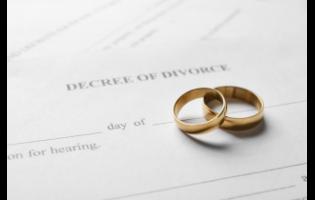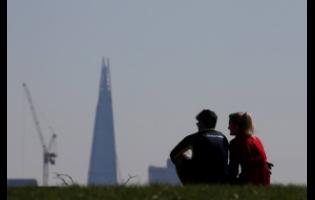Many sides to Jamaica
If you listen to some people, that man called Owen 'Blakka' Ellis is a jokify bredda, a silly comedian or a clown who is always trying to make somebody laugh.
But if you talk to another set of people you may hear that Blakka is a killjoy who over thinks everything, gwaan like him too bright sometimes and takes most things too seriously most of the time. Ask some other people and you may hear that neither of those descriptions are really accurate. Luckily, mine is not a single story. How about yours?
Ask Canadian-based Trinidadian comedian Jean Paul about Jamaicans and he'll very likely break into a smile and regale you stories about the joys he has experienced interacting with Jamaicans, not only in Toronto, but on his several visits to the rock. Jean Paul thinks Jamaicans are wonderful people. And of course, I agree with him. But, hey, I'm naturally biased, and based on reports I have been hearing Jean's view definitely isn't shared by immigration officers at Piarco International Airport in Port of Spain. In fact, I've heard that one talk show host in Trinidad and Tobago has actually referred to Jamaicans as 'pests and nuisances'. One Jamaica, two starkly contrasting stories. Life, eh?
Look here nuh, there's a very instructive and inspiring video on YouTube in which Chimamanda Ngozi Adichie shares how easy it is to create and perpetuate limiting and sometimes harmful generalisations that place people in stereotypical boxes. It's called 'The danger of a Single Story', and in the inspiring and instructive presentation - part of the popular TED Talk series - the outstanding Nigerian novelist and short story writer also reminds us that if we hear only a single story about another person or country we risk a critical misunderstanding. I couldn't help thinking about that as I read a report about the international coverage given to a very sad and sobering recent situation in Jamaica.
Motives unclear
Randy Hentzel and Harold Nichols, two US Christian Missionaries working in Jamaica, were murdered recently. The motives behind the murder of the two men are still unclear, but it is undoubtedly an unspeakable tragedy. One of the things emerging from that sad situation that has grabbed me though, is a report on the incident that quoted a TV news anchor saying, "It's astounding to think that a lot of people think that Jamaica is a paradise, but it is an extraordinarily violent country with a remarkable murder rate." Yes, that is how CNN News anchor, Ashleigh Banfield, reportedly framed the story. And I doubt if Mr Banfield ever lived in Jamaica.
On the other hand, Teri Nichols, the grieving widow of one of the deceased men, had an entirely different and contrasting response. According to a report in yesterday's Gleaner, Mrs Nichols said she has lived on the island for 14 years and had never previously experienced any kind of violence or anything that would make her feel fearful. According to her, "whoever committed this atrocity is a couple of people out of 2.8 million" and "it would be a very big leap for people to say: "You can't go to Jamaica because two missionaries were killed."
With the increasing rate at which our brothers are being killed in the US, often by the police and usually under questionable circumstances, one could tell and retell the single story that the 'American Dream' is a tragic nightmare for black men, right? But as Ms Adichie eloquently reminds us, the single story creates stereotypes, and the problem with stereotypes is not that they are necessarily untrue, but that they are incomplete. What you say?
box-mi-back@hotmail.com







































